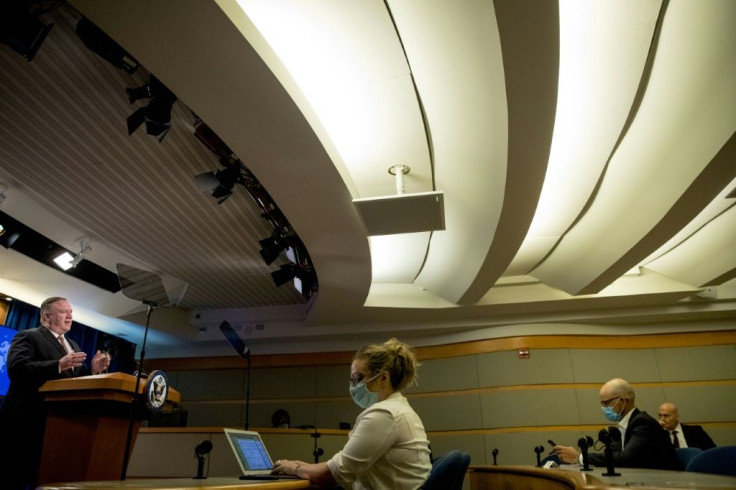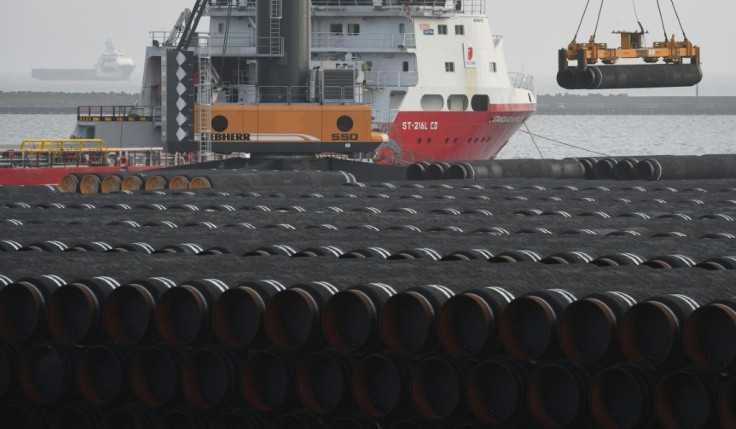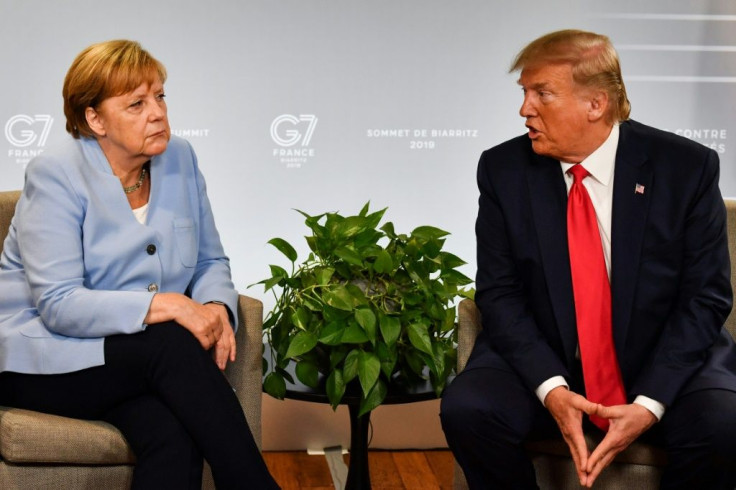Challenging Germany, US Opens Way For Sanctions On Russia Pipeline

Escalating pressure on Germany, US President Donald Trump's administration opened the way Wednesday for tough sanctions as the ally moves forward with the Nord Stream 2 gas pipeline with Russia.
"It's a clear warning to companies -- aiding and abetting Russia's malign influence projects will not be tolerated," Secretary of State Mike Pompeo told a news conference.
"Get out now or risk the consequences," he warned.
Nord Stream 2, which is near completion beneath the Baltic Sea, is set to double Russian natural gas shipments to Germany, the EU's largest economy, at a cost of 10 billion euros ($11 billion).
Trump last year signed legislation that targets contractors working on Nord Stream 2 and another Russian gas project, TurkStream, which goes through the Black Sea.
But while those sanctions focused on technical assistance, the separate Countering America's Adversaries Through Sanctions Act lays out harsh measures that can include severing access to the US financial system.
After President Donald Trump reluctantly signed that act in 2017, then-Secretary of State Rex Tillerson exempted Nord Stream 2 and TurkStream on the grounds that work on the projects had begun before the law.
Pompeo announced revised guidelines that lift the exemptions, meaning German companies will suffer sanctions even for small investments.
His decision does not in itself authorize any action, which still needs to be determined by the administration.

Germany had voiced anger over the earlier sanctions law, saying that it interfered in its internal affairs.
But Ukraine, Poland and Baltic states have voiced fear that Nord Stream 2 will further embolden Russian President Vladimir Putin
"We are adding our voice to those European voices today that are concerned about Russian aggression," said Chris Robinson, a senior US diplomat handling Russia.
"The tools that we have made available today help reinforce that message," he told reporters.

Germany, despite political differences with Russia, sees Nord Stream 2 as ensuring a more stable and cleaner source of energy as it shuns coal and nuclear power.
But critics say that Russia will be able to bypass Ukraine, which is battling Russian-backed separatists.
"The Kremlin has continued to push Nord Stream 2 in its effort to exploit and expand European dependence on Russian energy," said Frank Fannon, the assistant secretary of state for energy resources.
"Ukraine's energy infrastructure serves as a deterrent to Russian aggression. Yet the Kremlin now seeks to undermine Ukraine, by making that infrastructure obsolete," he said.
Germany is a longstanding ally of the United States, but Trump has tense relations with German chancellor Angela Merkel, once berating her as "captive" to Russia and belittling her welcome to Syrian refugees.
Trump recently approved plans to pull 9,500 US troops from Germany, accusing Berlin of treating the United States unfairly on trade while not paying enough on defense.
Merkel also apparently upset Trump by declining to attend a Group of Seven summit he had hoped to host in the midst of the coronavirus pandemic.
Former US officials Brian O'Toole and Daniel Fried, now fellows at the Atlantic Council, said Pompeo's announcement appeared to be a "major escalation" over Nord Stream 2.
They wrote in an analysis that the administration was likely hoping to put pressure on Germany rather than intending to issue sanctions.
"Of course, in this administration, the political will to impose sanctions on an allied nation could materialize quickly, with a decision made by tweet, or in reaction to a news snippet," they wrote.
Putin said in January that he hoped Nord Stream 2 would be completed by early 2021 after "several months" of delay caused by the US sanctions.
Despite Trump's anger over Nord Stream 2, he has sought to build relations with Putin and has mused of inviting him to an expanded G7 summit.
© Copyright AFP 2024. All rights reserved.





















